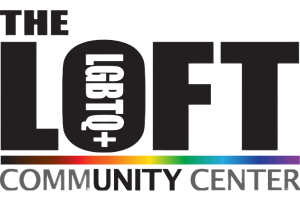Family's Legal Needs
Estate Planning for the LGBTQ+ Community
Christine J. Klein, Esq.
June 2011
Estate planning is important for all couples and singles, regardless of sexuality or gender identity. But for members of the LGBTQ+ community, it can be absolutely critical.
LGBTQ+ families need to be protected, even more than heterosexual families, simply because we do not have the same automatic safeguards that other married couples do in this country. What is more, many members of the LGBTQ+ community are estranged from their families. Because our family structure is often “non-traditional,” we need to take extra care to be certain that the people we love are provided for when we are gone.
Do you know who will inherit your property when you die? Who will care for your children? And who will make decisions for you if you are unable to do so for yourself? If you do not know the answers to these questions, you may not be prepared.
If you do not have a health care proxy or you die without a will, the law is going to look to your “next of kin.” You might think of that as your partner or even your dearest friend, but the courts probably may not. Instead, your property could go to your parents or siblings and they will make the decisions on your health care as well. Your partner might be excluded completely. The child you raised, but never adopted, could be left with nothing. The parent who evicted you when they found out you were gay may make your health care decisions when you no longer can.
But there are ways to protect yourself and your family. There are legal documents we can use to make sure that the people you want to make the decisions and receive your property are the ones who actually do. The most common tools we use are wills, trusts, health care proxies, living wills and powers of attorney.
Last Will and Testament – It is through your will that you can leave your property to those you care about in the proportions you wish. Your will can also appoint a guardian for your minor children, as well as a guardian for the assets they may inherit from you.
Trusts – A trust is a document that contains the rules on how, what, when and where a gift will be distributed to heirs and beneficiaries. Common objectives of trusts are to protect property, save estate taxes and avoid probate.
Health Care Proxy – This document will allow you to appoint someone to make health care decisions for you when you are not able.
Living Will – A living will is a legal document wherein you can state today, while you are still competent, your wishes for your future health care.
Durable Power of Attorney – This document will allow someone to manage your property and make legal decisions for you when you are no longer able to do so.
No two estates are exactly the same. Finding the right combination of these and other legal documents to protect your family will be a collaboration between you and your attorney. But if you plan carefully, you can ensure that you and your loved ones are protected and provided for.
Christine J. Klein has been practicing law in the New York area for more than 25 years. She has a general family practice, focusing on issues which affect the LGBTQ+ community, including estate planning, wills, advance directives, adoption, reproductive law, child custody, dissolution of marriage and civil unions, cohabitation agreements, real estate, personal injury and more.





